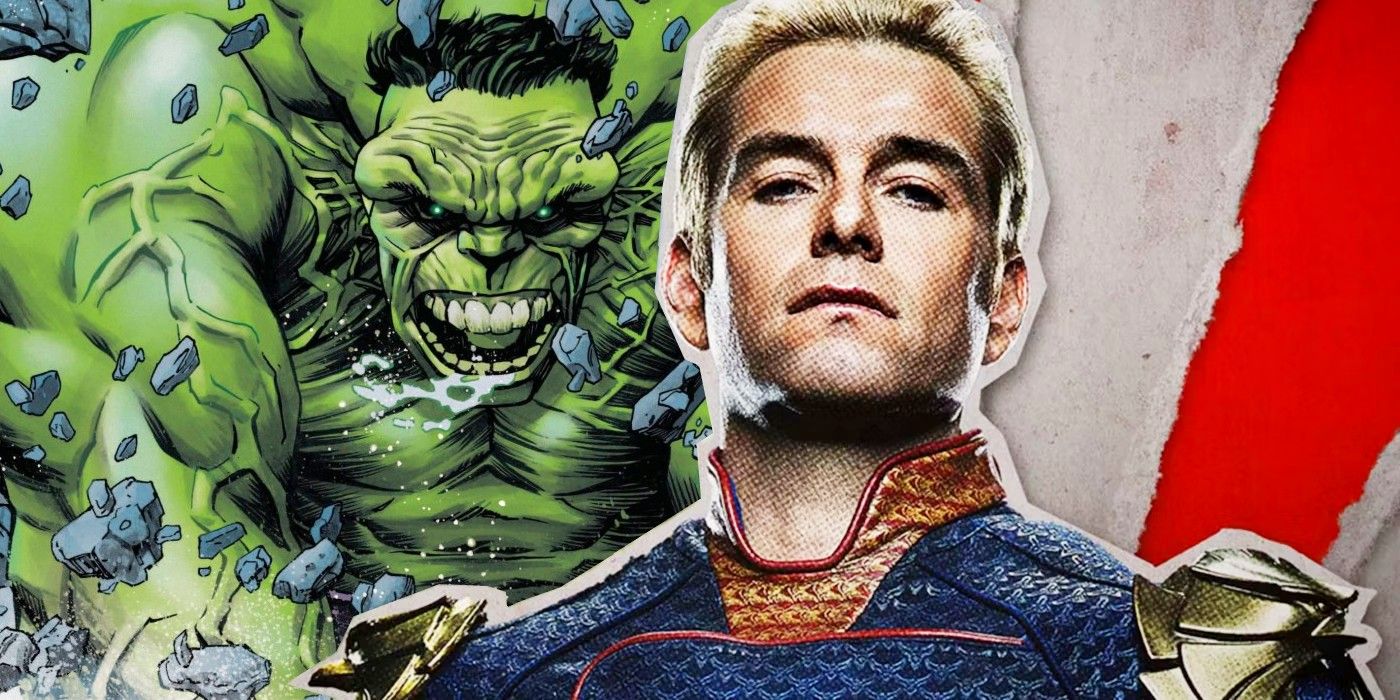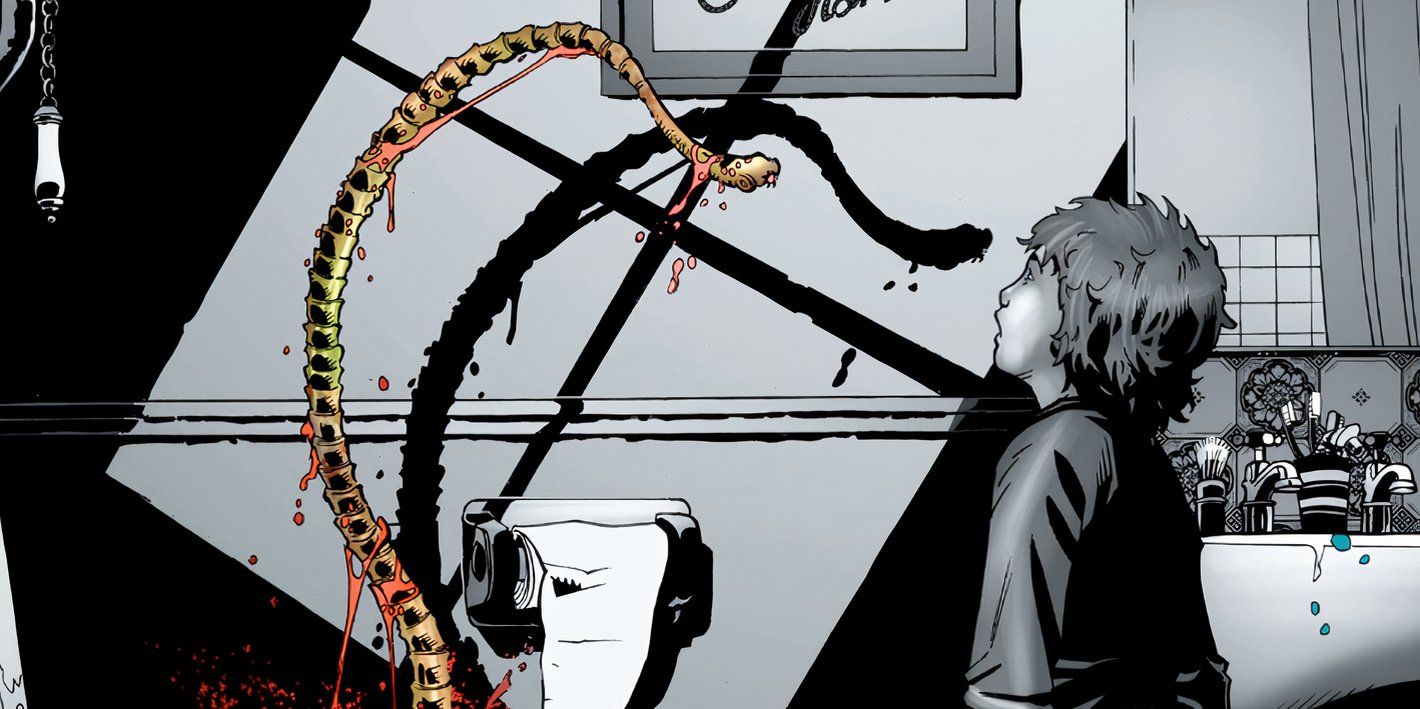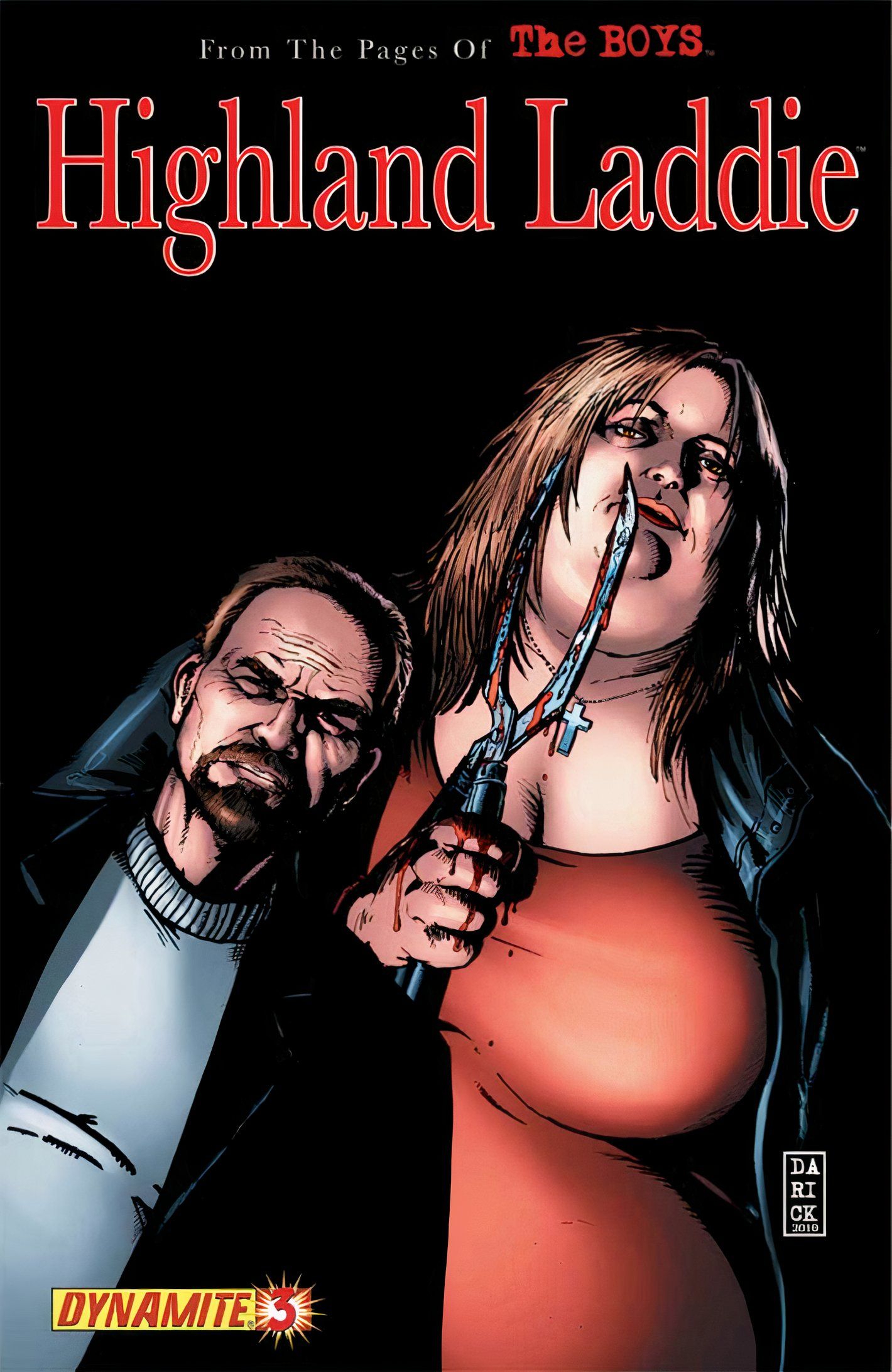Summary
- The Boys tackles corruption and unchecked power through disturbing metaphors like the tapeworm in issue #3.
- Homelander embodies the parasite metaphor in a literal sense, reflecting the destructive nature of the Supes.
- The tapeworm analogy sheds light on the darker aspects of power dynamics and corporate misbehavior in The Boys.
Contains discussion of potentially disturbing subject matter.
Garth Ennis’ satircal masterwork, The Boys, featured many different kinds of monsters throughout the comic’s run, but the most disturbing of them by far serves as a potent metaphor, one which explains how fans are really supposed to see Homelander, and indeed all the Supes who help to enforce Vought-America’s vision for America.
The Boys: Highland Laddie #3 – written by Garth Ennis, with art by John McCrea and Keith Burns – continues the spin-off miniseries’ tale of Hughie’s time away from the team. In the issue, Hughie tells a story from his childhood about coming face-to-face with a tapeworm, a real-life parasitic creature that reflects superheroes role in The Boys.
Though Hughie’s story’s gross-out factor reflects the overall gore-heavy style of The Boys – as it is far from a series for the squeamish, or faint of constitution – it is also notable for this deeper relevance it holds to the overall trajectory of the series.
The Boys: Highland Laddie
takes place between issues #47 and #48 of the main series.

Related
The Boys Humiliated Hulk by Putting a Disgusting Twist on His Powers
The Boys takes Hulk’s powers more seriously than Marvel, coming to an R-rated conclusion about the dark way they actually work.
Hughie’s Tapeworm Story Reflects Homelander’s True Nature As A Parasite
The Boys: Highland Laddie #3 – Written By Garth Ennis; Art By John McCrea & Keith Burns; Color By Tony Aviña; Lettering By Simon Bowland
The tapeworm is one of
The Boys’
most visceral metaphors for both Vought-America’s Supes and the company itself.
While no-one could call the original The Boys comics subtle – Billy Butcher and his black-clad team spend a little too much time beating superheroes to death with crowbars for that – Garth Ennis’ series did offer a consistent perspective on corporate misbehavior, political corruption, and the poisonous influence of unchecked power. That message was hammered home in numerous ways throughout the series; one particularly stand-out example came in the Highland Laddie miniseries, when Hughie related the story of his Auntie Mary, a family relative and house guest who was eventually found to be infected with a tapeworm.
In time, the tapeworm grew to gigantic size, as a result of communication issues that prevented her seeking help. The young Hughie was unfortunate enough to come face-to-face with the seventeen-foot-long parasite, and was so severely traumatized that he didn’t speak again for an entire year. It’s a grim story, but it’s not included in the series for the sake of pure body horror. Rather, the tapeworm is one of The Boys’ most visceral metaphors for both Vought-America’s Supes and the company itself.
The tapeworm is a parasite which is stealing the nutrients from its host, causing immense pain and suffering without being detected by anyone but the person it is hurting. This process is inherent to the parasite’s nature, just as throughout The Boys Garth Ennis repeatedly argues that Vought-America will take whatever it can to further its interests unless stopped by an outside force. Similarly, just as Butcher argues all Supes need to be stamped out, because the powerful will always take advantage of the powerless when given the chance.
The Boys’ “Supes” Are A Critique Of Unchecked Power
Always Taking, Never Giving
This model of corrupt power was shown throughout
The Boys
, as the powerful took whatever they wanted, while giving nothing back to the world they were taking advantage of.
Homelander is the most obvious example of The Boys’ themes, as the unkillable Superman-pastiche realized over the course of the story that no-one – including his corporate handlers – could stop him from doing whatever he wants. Ultimately, however, Homelander was a living lie. While the public were told he was a savior, the biggest challenge he faced was quietly killing off disobedient supes before they saw him coming. Homelander gave nothing to the people who love him, and in return he demanded to have his every need instantly met, responding to any frustration with the violent impatience of a child.
This model of corrupt power was shown throughout The Boys, as the powerful took whatever they wanted, while giving nothing back to the world they were taking advantage of. The tapeworm metaphor from Highland Laddie #3 has a particular tie to Homelander, however, due to the Supes’ hidden origin, where Vought-America forced a woman with no family into giving birth to their latest experiment. As grotesque as it may sound, Homelander’s metaphorical status as a parasite has a literal connection to his gruesome character origin.
The Boys‘ handling of these stories, and these themes, was far from perfect; the series was often cavalier with its depictions of cruelty exacted on vulnerable people. That said, Garth Ennis chose every detail of The Boys deliberately, in order to speak to the larger themes at play in his superhero satire. The tapeworm anecdote from The Boys: Highland Laddie #3 is a particularly emphatic example of that. It offers readers an opportunity to connect a real-world horror to the speculative threat posed by the series’ superheroes in a concrete, effective way.
The Tapeworm Is An Unexpected Key To Understanding The Boys
Unlocking The Metaphor
By taking them out of their often-idealized context, and imagining a more “realistic” – that is, dysfunctional and oppressive – superhero system, Ennis offered a revolutionary take in
The Boys.
One notable takeaway from the tapeworm metaphor for The Boys supes, introduced in Highland Laddie #3, is the idea of how parasites like Homelander and Vought thrive in secrecy and silence. While The Boys may be “about” superheroes on the surface, its underlying thesis is that they’re a multicolored lie used to make brazen, predatory behavior palatable to an uninformed public. As the most powerful, and most prominent super-powered figure in the series, no character embodies this more than Homelander himself.
At different points, The Boys used supes as metaphors for corruption in business, crime, government, and even organized religion. In turn, the tapeworm is one of the comics’ most deliberate keys for interpreting the superheroes themselves. This is because it makes a raw, uncomfortable analogy about what the story’s creators think is so disgusting about the abuse of power. Though it is understandable that many readers might have overlooked the significance of this idea upon initially reading the Highland Laddie spin-off series, but in retrospect, it is foundational to understanding Garth Ennis’ overall project.
For better or worse, Superheroes are an essential aspect of contemporary culture, a position shaped over the course of a century; consequently, Garth Ennis used them as the perfect means of commenting on the problems in contemporary culture. By taking them out of their often-idealized context, and imagining a more “realistic” – that is, dysfunctional and oppressive – superhero system, Ennis offered a revolutionary take in The Boys, something that was keenly, if unexpectedly, articulated by Hughie’s tapeworm story in Highland Laddie #3.
The Boys: Highland Laddie
#3
is available now from Dynamite Entertainment.

The Boys
The Boys is a superhero/dark comedy satire series created by Eric Kripke based on the comic series of the same name. Set in a “what-if” world that reveres superheroes as celebrities and gods who experience minimal repercussions for their actions. However, one group of vigilantes headed by a vengeance-obsessed man named Billy Butcher will fight back against these super-charged “heroes” to expose them for what they are.
Join Amazon Prime – Watch Thousands of Movies & TV Shows Anytime


